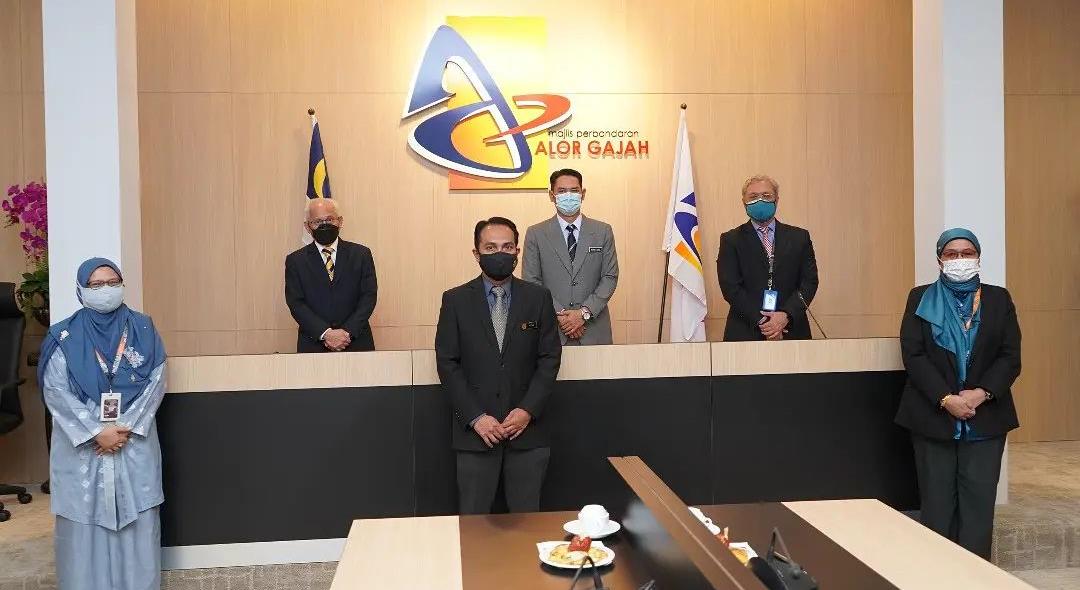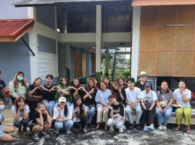Empowering The Wet Market Waste Management Alor Gajah, Melaka, Malaysia
Metrics
Community
Alor Gajah, Melaka, MalaysiaUniversity
Universiti Kuala LumpurProgram
Malaysian Institute of Chemical and Bioengineering TechnologyYears
2021Status
ConfirmedCase Type
Partnership StoriesRegion
Asia, Global, MalaysiaSustainable Development Goals
11 Sustainable Cities and Communities, 13 Climate Action, 15 Life on Land, 17 Partnerships for the Goals, 2 Zero Hunger, 3 Good Health and Well-Being, 6 Clean Water and Sanitation, 7 Affordable and Clean Energy, 9 Industry Innovation and InfrastructureThough hypermarkets and supermarkets have become the primary source of goods for most Malaysians, many prefer to get their fresh agricultural products from farmers’ and wet markets, like the Alor Gajah Wet Market in the State of Melaka. Each month, the market sends two tons of waste–a third of its total monthly food supply–to a landfill 20 kilometers away. Council members are determined to fix these waste management inefficiencies and address associated supply chain, sanitation, and infestation concerns.

Under The Low Carbon Cities Initiative, Alor Gajah Municipal Council (Majlis Perbandaran Alor Gaja: MPAG) has taken the initiative to explore the possibility of managing waste with a greener approach such as using the composting system. Although the composting technique is well understood, few commercial composting facilities exist. Designing composting methods for wet market recycling is critical.

Alor Gajah Municipal Council collaborated with Universiti Kuala Lumpur – Malaysian Institute of Chemical and Bioengineering Technology (UniKL-MICET) and the Solid Waste Management and Public Cleansing Corporation to create a systematic, practical, and effective solid waste management at the Alor Gajah Wet Market community. Together, the three parties aim to raise awareness of the wet market community on environmental issues and design practical systems and technologies to minimize waste generation.
The project was conducted based on four phases. Diploma, undergraduate, and graduate students participate in all four phases, following the EPIC Model.

Phase 1: Community Awareness
MPAG representatives went to the market to give face-to-face information regarding Sustainable Development Goals (SDGs) and good waste disposal practices. Undergraduate students from the Engineering Technologists in Society participated in activities, including environmental education, introduction to solid waste management, and SDGs.
Phase 2: Training / Workshop

UniKL-MICET provides modules covering environmental education, separation at source, and environmental chemistry for composting. The delivery process of this program included face-to-face/physical training and online. Diploma students from the environmental science course and bachelor students from solid and hazardous waste management participated in training and workshop activities to learn how to separate waste at the source and composting processes.
UniKL-MICET also provided workshops involving designing, building, operating, and maintaining the rotating composting bins (160L rotating composting bin). Bachelor students enrolling in the Environmental Engineering Design course participated in the creation of the 160L rotating composting bin.

Phase 3: Project Monitoring
Periodic monitoring of this project is carried out to assist with technical needs arising. Project monitoring is done through online support services (via telephone) and site visits to review the project’s status.
Phase 4: Project Handover
A total of 5 individuals/groups will be selected for a pilot project where they will be provided with a set of rotating composting bins. The duration of the pilot project is for two months.

While the program initially received positive feedback, based on the observations and feedback from the wet market sellers, it can be deduced that increasing awareness and using 160L Rotating Composting Bin might not be able to improve waste management in the long-term period. The challenges in improving waste management in this community are due to a lack of substantial community support. More efforts will have to be made in future projects to raise more support.
While the long-term success of waste management at Alor Gajah Wet Market is not absolute, the program’s aim to improve learning was a great success. The program has shown that project-based learning is linked to significant improvements in student test scores, attendance, and classroom engagement. It also allows lecturers and researchers to build stronger relationships with the students by acting as their hands-on learning facilitators. In addition, the students also experienced the following soft skills:
- Cooperation/collaboration: Relationships built through collaboration are essential to the program. Students not only learn how to work better in groups by providing their contribution, listening to others, and resolving issues as they arise. Students also establish relationships with community members while working on projects, gaining insight for future employment and beyond.
- Problem Solving: Students learn how to more successfully address problems that are significant to them, including real-world community issues – including learning from failure and maybe beginning over.
- Creativity: Students use their creative thinking talents to develop new product designs and project possibilities.
- In-Depth Understanding: Students improve their research skills and broaden their understanding of applied topics beyond memorizing facts.
- Critical Thinking: Students learn to look at challenges through a critical thinking lens, asking questions and brainstorming alternative solutions for their assignment.
- Project Management: Students learn to manage projects and assignments more effectively.

Partnership Contact Information
City of Alor Gajah Contact
Mohamad Shafie Bin Taib
Engineer
Town Planning Department
mohamad_shafietaib@yahoo.com


